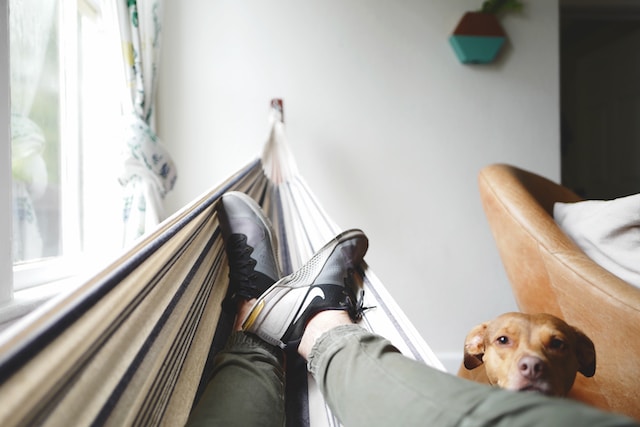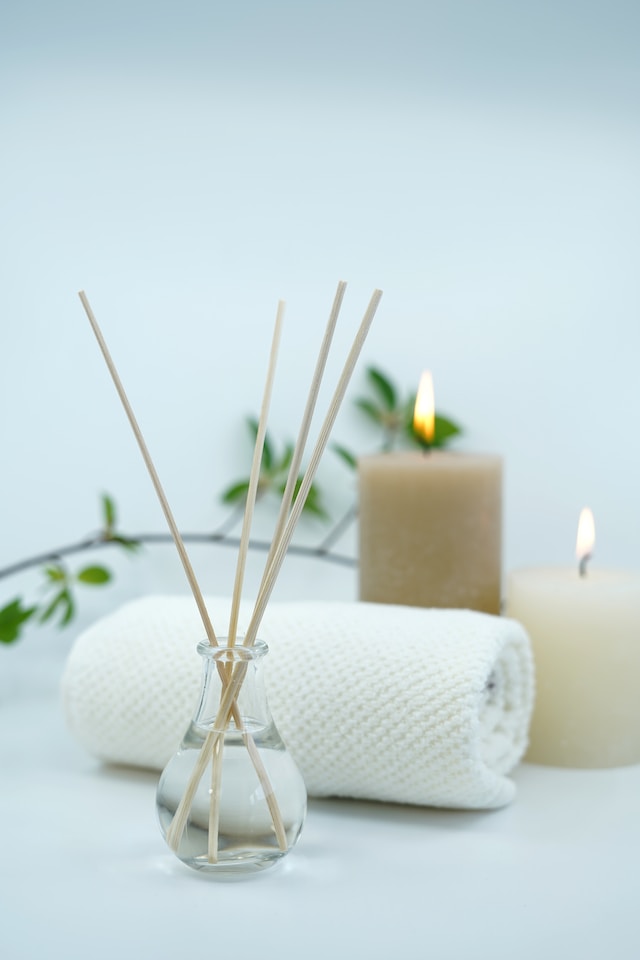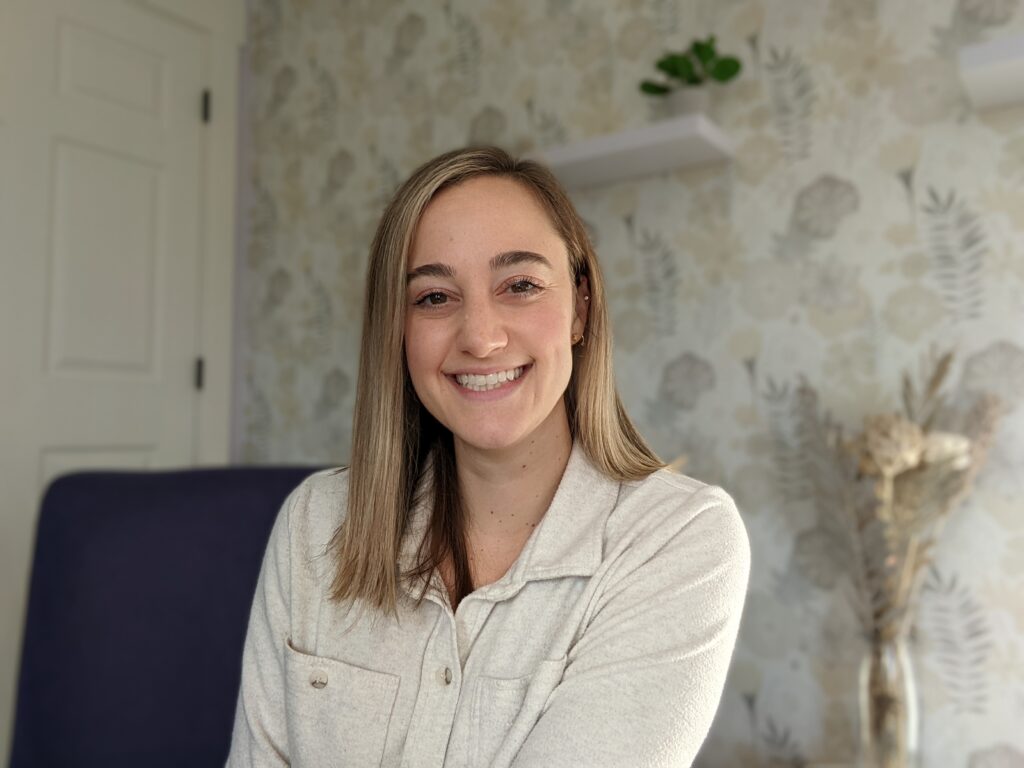October 27, 2023
4 Ways to Cope with the “Why Do I Feel Guilty When I Relax?” Dilemma

Learn how to start to tackle your own “why do I feel guilty when I relax” dilemma.
It is rather common these days to feel guilty for taking time off work or relaxing on your days off. While it is common, it can feel really frustrating to have your mind continuing to be in productivity mode or nagging at you for relaxing when you finally get the time to do so. As a burnout therapist and somatic therapist in Asheville, NC, I will offer some ways to start to address the guilt you feel when you relax or when you are not “productive” in this blog.
The Importance of Relaxation
First, it might be helpful to learn about why it is important to relax. Rest and relaxation does not equal unproductivity. There are a lot of medical benefits from relaxation and actually allows for systems in your body time to be “productive” Such as your immune system and your digestive system and your parasympathetic nervous system supports this rest and digest mode. This also helps your muscles recover from physical stress and your brain is able to take a break from problem solving and being “on”.
Relaxing will increase productivity at work, at school, at working towards your goals or creative endeavors. Learn more about what happens when you relax here. Many of my clients share with me that when they start to do less and find time regularly to relax they feel more focused and productive at work.
This study looked at the use of 3 diffierent relaxation techniques and their impact on reduction in cortisol and stress in participants. The 3 different relaxation techniques used were a breathing exercise, guided imagery, and a progressive muslce relaxation. The study summarizes the importance of use of relaxation techniques to reduce stress and cortisol and details the long term negative effects stress has on mental and physical health.

So how to start practicing relaxing without feeling guilty?
4 Things to Consider to Better Understand the Question “Why do I feel guilty when I relax?”
Understand and explore the guilt. Sit with this for a bit and reflect on your relationship with relaxing and the beliefs you might have about productivity and relaxing. When we start to understand the guilt or our challenge with relaxing we can start to pick out skills that might better address these. Some thoughts to consider are:
- The societal expectations and culture of constant productivity that is the in the United States. Your supervisors and employer may be giving you the message to be working longer or harder or they may not model taking time off work.
- Do you have a fear of falling behind at work? Do you have a fear of being unproductive? Better yet, is your self-worth attached to your productivity (this is common for many).
- Is it guilt? Or do I just feel uncomfortable with not being productive?
- Am I worried about what others think of me?
4 Cognitive Strategies to Start Coping with The Guilt When You Relax
1. Do an Inventory of Your Values
What is important to you? How does relaxation and taking breaks support these things? When we connect with what is important to us and our actions match, we tend to feel more like ourselves. Taking inventory of your values might help you see the long term positive consequences of practicing relaxation or taking time off of work.
2. Don’t Try to Not Feel Guilty
You will likely feel guilty for a bit, and that is okay and hopefully in time that will decrease. If you try to tell youself to not feel guilty or judge yourself when you feel guilty, you are in a losing battle. When we try and avoid feelings, they tend to come up more. Rather, practice acceptance. If you are the one for mantras and affirmations, perhaps try these:
It is normal to feel guilty right now, and this is also productive to my health.
I am being productive by relaxing.
I am deserving of rest and relaxation.
I do not need to earn my rest.
Having fun is productive.
3. Make a List
When you sit down, notice where your brain wants to go. Write down the list of things that your brain is telling you you need to do. Plan when those things will get done or that they are already done. When your brain goes back to those things, look at the list and remind your brain you have it written down and go back to the relaxing activity. This will take practice and some repetition to remind your brain and shift your focus back to relaxing.
4. Change/Challenge Your Relationship with Guilt
Consider exploring and challenging your relationship with the feeling of guilt. While it is an emotion and a response to taking a break or resting, it does not mean that your decision to do so is wrong. This is similar to when we set boundaries that are supportive for ourselves. We will likely feel guilty-totally normal–and does not mean the boundary was not necessary. Same with the guilt of relaxing or feeling guilty taking time off work. This takes practicing flexibility through use of “both and” statements. Example: “I feel guilty for not doing anything today and I feel more like myself when I take time to relax”.
If your thoughts are persistent, here are some example phrases that can be helpful in appropriately separating yourself from your thoughts.
The story I am telling myself is I’ve done nothing productive all day (or fill in the blank)
I am having the thought _____ and this is connected to ____
I am noticing I am starting to guilt myself for taking a break.

How to Start Relaxing When you Feel Guilty
Below is a list of a number of ideas for relaxation and rest. For you to start gaining the benefits of these activities and to decrease your guilt, you need to plan for it and practice it (this includes the cognitive strategies above). Create space in your schedule for these activities and treat them the same as other responsibilities so you follow through.
Sounds simple, and we need to practice relaxing to start to get good at it, and for it to become incorporated into our daily/weekly/monthly routine.
7 Ideas of Relaxation Activities:
1. Meditation
Try out a meditation app such as Insight Timer, Healthy Minds App, Headspace, Aura App (I am not affiliated with any of these and the range from free to paid subscriptions). Whether you have 1 minutes or 10 minutes you can find a wide range of different meditations for all levels of experiences. You can also do some search on YouTube for specific types of meditations as well.
2. Guided Imagery
You can find specific meditations that use guided imagery. When we image being in a relaxing space or guided into a past positive memory, our bodies tend to respond just as if we were there.
3. Practicing Breathing Techniques
Breathing is more and more talked about and how it can support feelings of calm and relaxation. There are some specific types of breathing that can support more focus, sense of calm, and presence. Square Breathing or Box breathing is a popular one. Breathing with a longer exhale than inhale is supportive of activating your parasympathtice nervous system (your rest and digest system). For a different technique, you can try alternate nostril breathing. You can learn more about how to do it here.
4. Progressive Muscle Relaxation
Listening to someone guide you through how to progressively relax your muscles can be a nice start to any other relaxing activity or if you don’t have time for a nap but want some time of rest. These can also be found on meditation apps.
5. Reading a Book For Fun
Pick up a fun book you have been wanting to read. Try to keep it fun with limited need for processing new infomration or engaging in too much learning. Reading a fanatsy series, adventure story, romanic comedy, or any book you might deem “brain candy”. These are easy to read books with engaging plots and storylines that help your brain take a break from work or problem solving mode.
6. Sitting Outside and Listening to the Sounds of Nature
Whether this is on your front or back porch, on a nature trail, or a park bench, take some time to see what sounds you can hear. The wind, birds, the leaves rustling, a creek or stream nearby? You can also fabricate this by playing nature sounds on your phone.
7. Taking a Warm Bath or Shower with Relaxing Music
Warm water tends to help our muscles relax and this can in turn help our brain start to relax. Create an intentional environment for this bath or shower to help increase your senes of enjoyment and relaxation. Add in candles, scented bath salts, tea/ your favorite beverage, a book.
If trying to jump into these feels too hard to start, try and find a relaxing activity to do with someone. Find someone who is going to reflect calm, relaxation, and presence or at least is not going to bring up work or their to-do list.

5 Ideas of Joint Activities for Relaxation when Feeling Guilty
1. Easy walk in the park, botanical garden, etc
Explore a new park or garden with your friend, or visit them during different times of year to see how they are in different seasons.
2. Listen to a book or podcast together
Take regular breaks to discuss the chaptesr, characters, and general thoughts and opinions. Pick media that is enjoyable and not too new information heavy.
3. Listen to music together
Take turns sharing current music, artist, albums that you have been enjoying.
4. Enjoy a meal together
Cook a meal for a friend and switch roles another week or go to a restaurant you both enjoy.
5. Go to a yoga class together
If you’re anything like me, you are more likely to go to a yoga class when you have a friend with you. If you find a weekly class you both enjoy, this can be an easy way to make relaxing without feeling guilty a routine.
Sometimes we need help to learn how to relax when we are starting. Bodywork can help our bodies relax more easily when someone else is supporting it.
6 Types of Bodywork that can Help You Relax Without Feeling guilty
There are many more types of bodywork, and this is just a list of some of the options.
1. Massage
There are many types and pick one that you know will be relaxing. You may want to avoid deep tissue massage as these can be more intense and some may not find this relaxing. Sweedish, sports massage, reflexology, hot stone massage
2. Acupunture
If you are not afraid of needles, acupucture can help the parasympathtic nervous system come on for more feelings of relaxation and rest. You know the needles are helping when you end up taking a nap during your session. There are many other benefits to engaging in acupunture as well.
3. Acupressure
This is similar to acupuncture, but does not include needles. It focuses on the use of certain pressure points similar to acupunture. When working with a practitioner, you can make clear your desire for relaxation so they can tailor their treatment to your goal.
4. Craniosacral therapy
This is a specific type of massage that is very gentle. It focuses on gentle touch, holding, and supporting of your nervous system to support rest and relaxation among other things.
5. Myofascial Release
This is a specific type of massage that is also gentle and aimed at ceratin trigger points. It is meant to help release tension in your myofascial layer of muscles. This can help with longer term patterns of tension, which can impact your ability for your muscles to relax, and you to feel relaxed.
6. Somatic Experiencing Touch Work
This is a form of gentle, non-invasive touch work that is not dynamic. It is performed by a Somatic Experiencing Practitioner. The intention is for the practitioner to support the client’s nervous system in releasing tension, completing past stress/trauma responses, and increasing regulation and settling in their nervous system.
Give yourself some time to try practice addressing your guilt and practicing some of the relaxation activities above. It takes some time for your brain and body to learn that it is okay to take time to rest.
If you need more support figuring out the best approach to address “why I feel guilty when I relax” a burnout therapist and somatic therapist can help.
I specialize in therapy for burnout and somatic therapy. I love helping professionals learn how to turn their mind off and reconnect to the people and things they love.
Reach out to connect.

© 2022-2026 Lexi Gross Counseling PLLC